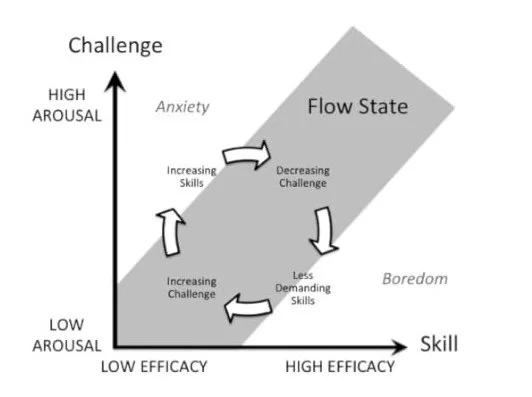Grit | Book Review
“It was this combination of passion and perseverance that made
high achievers special. In a word, they had grit" (p. 8).
Angela Duckworth's well-researched classic serves as a lifetime reminder we should appreciate what others have accomplished rather than passively claim others simply are just "born that way," or are "naturals." This "naturalness bias" is a hidden prejudice against those who've achieved what they have because they have worked for it, and a hidden preference for those whom we think arrived at their place in life because they're naturally talented (p. 25).
Consider the significance. Mythologizing natural talent lets us all off the hook (p. 39). If we believe another person's performance comes easily, we've granted ourselves an excuse for lesser performance, or worse, for not trying.
This review explores Duckworth's distinction between internal grit, which we may apply for self-improvement; and external grit, which we may apply in our leader as coach role.
I grew less and less convinced that talent was destiny and more and more intrigued by the returns generated by effort (p. 20).
Internal Grit
Deliberate practice is for preparation,
and flow is for performance (p. 132).
Chapter seven is marvelous. Duckworth shares her insights gained from meeting and working with Anders Ericsson, who defines deliberate practice (see Peak) as consisting of (p. 137):
• A clearly defined stretch goal
• Full concentration and effort
• Immediate and informative feedback
• Repetition with reflection and refinement
The idea that if we spend 10,000 hours on an activity, we'll become world class has unfortunately become popular. Ericsson's findings were specifically that 10,000 hours of deliberate practice leads to world class performance, not natural talent.
Interestingly, Duckworth encountered Mihaly (Mike) Csikzentmihalyi (see Flow) shortly after working with Ericsson. For Csikzentmihalyi, the signature experience of experts is flow, which is best expressed visually as:
After studying the two concepts, Duckworth came to understand that flow and grit go hand in hand (p. 131). When we watch Steph Curry repeatedly sink 3-point shots, we're watching him in a state of flow, without thinking about his thousands of hours of deliberate practice which made his performance possible. Duckworth now believes that the primary motivation for doing effortful deliberate practice is to improve your skill (p. 131).
How best to cultivate our grit? Duckworth recommends that a growth mindset leads to optimistic ways of explaining adversity, and that, in turn, leads to perseverance and seeking out new challenges that will ultimately make you even stronger (p. 192).
External Grit
Duckworth continuously seeks indicators, or predictors of grit, and found that follow-through in high school extracurriculars predicted graduating from college with academic honors better than any other variable (p. 229). Perhaps we should consider follow-through or demonstrated determinism in adjacent skills or hobbies when hiring or building teams. What we have tended to find is that all that energy, drive, and commitment -- all that grit -- that was developed through athletics can almost always be transferred to something else (p. 235).
Similarly, phrases such as relentless pursuit, dogged determinism, or continuous improvement in our Personal Leadership Philosophy may foster an environment where grit is both welcomed and nurtured.
Another idea: Incorporate deliberate practice into After Action Reviews (AARs). AARs already focus on feedback and refinement. We can simply modify the commitment to improve into a stretch goal with singular focused intensity. Imagine instilling this habit into your organization creating a chain of performance breakthroughs.
Summary
Passion and perseverance. That's the recipe. Hat tip to Duckworth for mentioning both Tom Deierlein and Robert Caslen in Chapter 12, A Culture of Grit.
What excites me most is the idea that, in the long run,
culture has the power to shape our identity (p. 247).
JE | August 2025


